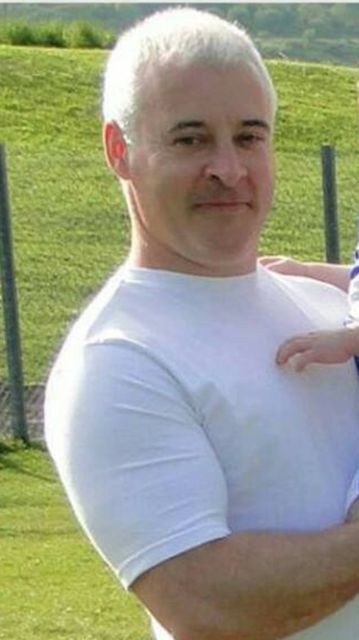There has been no publicly updated assessment of the security situation in Northern Ireland since the last joint PSNI/MI5 review of the terror threat was carried out in 2015, with no apparent plans for another.
On Friday, BBC’s Nolan Show reported that the PSNI assessment of the Northern Ireland security situation “has not changed” since the 2015 report.
The PSNI has said the claims broadcast by the Nolan Show, which were reported by other media including the Belfast Telegraph, had been wrongly construed, adding that they continue to monitor paramilitary activity along with other government agencies.
The 2015 report was a one-off, commissioned following the murder of Kevin McGuigan outside his Short Strand home in August of that year to inform political talks.
An NIO spokesperson said that assessment was carried out over “specific concerns”, but paramilitaries were still being monitored.
Read more
Asked by Belfast Live if there would be another review, they said: “In 2015, the UK Government commissioned the Assessment of Paramilitary Groups in Northern Ireland in order to provide a factual assessment from the UK security agencies and the PSNI on the structure, role and purpose of paramilitary organisations in Northern Ireland.
“The then Secretary of State for Northern Ireland made clear at the time that this assessment was commissioned due to specific concerns, and was intended to inform the then ongoing cross-party talks.
“The PSNI and security partners continue to work to keep the people of Northern Ireland safe, including monitoring the continuing threat from paramilitary and terrorist groups to inform their operational response.”
The PSNI told the Sunday World they had responded to a media enquiry by saying: “The assessment commissioned in 2015 by the then Secretary of State on Paramilitary Groups in Northern Ireland has not changed.”
The PSNI added: “That line has been construed as indicating the Police Service of Northern Ireland has conducted a contemporary assessment within the same terms as the then Secretary of State’s 2015 assessment, which is not correct.
“For clarity, the assessment commissioned in 2015 by the then Secretary of State has not been subjected to a further assessment under the same framework.
“For reassurance the PSNI continually assesses paramilitarism, co-operating fully with its partners, government and other bodies, responsible for monitoring the overall effect of paramilitary activity on society.”
Earlier this month the Director General of MI5 gave his annual security briefing to journalists. Northern Ireland did not even feature in the final breakdown of the urgent threats to UK security.
Speaking from the Terrorism Operations Centre in London, Ken McCallum revealed that MI5 and the police have disrupted 43 terrorist plots since March 2017, and over a third of those were linked to overseas terror organisations, including Isis and Al-Qaeda.
The head of MI5 also revealed that 13% of all people being investigated for involvement in UK terrorism by the security service are minors — a threefold increase in the last three years.
He added that when MI5 and the police are determining if individual acts of violence are terrorist in nature, “politics plays no role in these decisions”.
There was only one reference to Northern Ireland made to journalists after the briefing to confirm that MI5 believes there are only around 30 active dissident republicans capable of threatening national security.
The rest of the update included the impact of the conflict in the Middle East, the Russian-Ukrainian war and threats posed by the Iranian and Chinese states. Mr McCallum added: “MI5 has one hell of a job on its hands.
“The first 20 years of my career here were crammed full of terrorist threats. We now face those alongside state-backed assassination and sabotage plots, against the backdrop of a major European land war.”
Kevin McGuigan whose murder sparked the report in 2015
Kevin McGuigan was killed in a revenge attack for the murder of leading republican and former IRA commander Gerard ‘Jock’ Davison three months previously.
The killing threatened the Assembly after the then PSNI Chief Constable George Hamilton said members of the IRA were involved, but added that “there is no evidence at this stage that the killing was sanctioned by the organisation”.
As a result, a security assessment was commissioned that stated while all the main republican and loyalist paramilitary groups from the Troubles still exist, their leaderships are, “to different degrees”, committed to peaceful means.
It said they were still organised along militaristic lines, but labels like “brigades” or “army council” make them “look more prepared for a campaign of violence than they are”.
The report said none of these groups was planning or conducting terrorist attacks, and even if they wanted to, they would be “unable to resurrect the capability demonstrated at their peak”.
It also stated that the Provisional IRA structures, including its ruling “army council’, remained in existence though in a much reduced form and its leadership was committed to the peace process.
And it added that some members are involved in gathering information such as details of dissident republican activity and attempts to identify covert human intelligence sources (informers).
The assessment said there were a small number of paramilitaries involved in the storage of weaponry to prevent it falling into dissident republican hands, while individual members remained involved in criminal activity like large-scale smuggling.
While the McGuigan murder investigation was ongoing, the report’s authors judged that Chief Constable George Hamilton’s assessment of August 2015 was “accurate” in October that year.
There has been no similar assessment carried out since.
